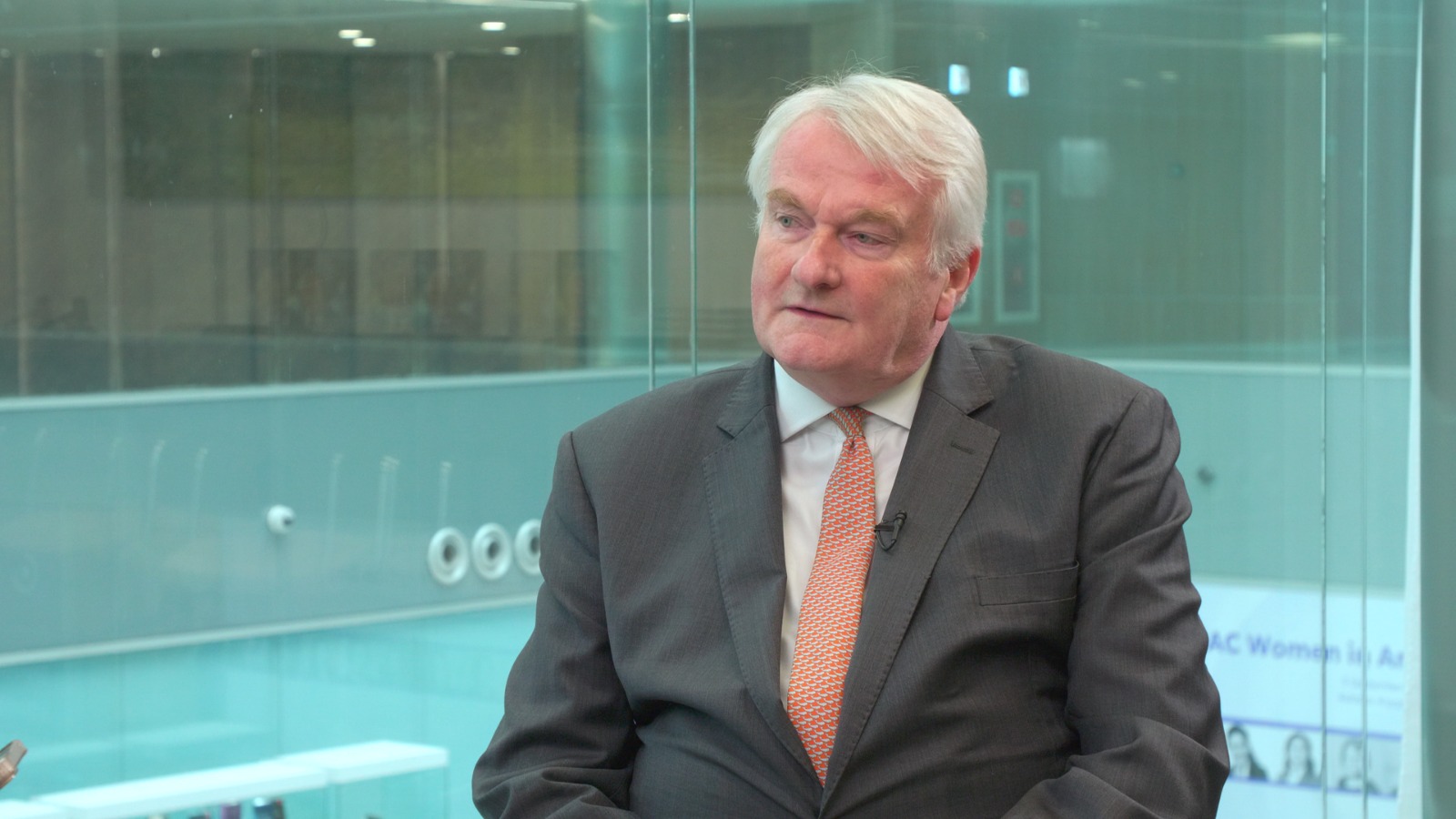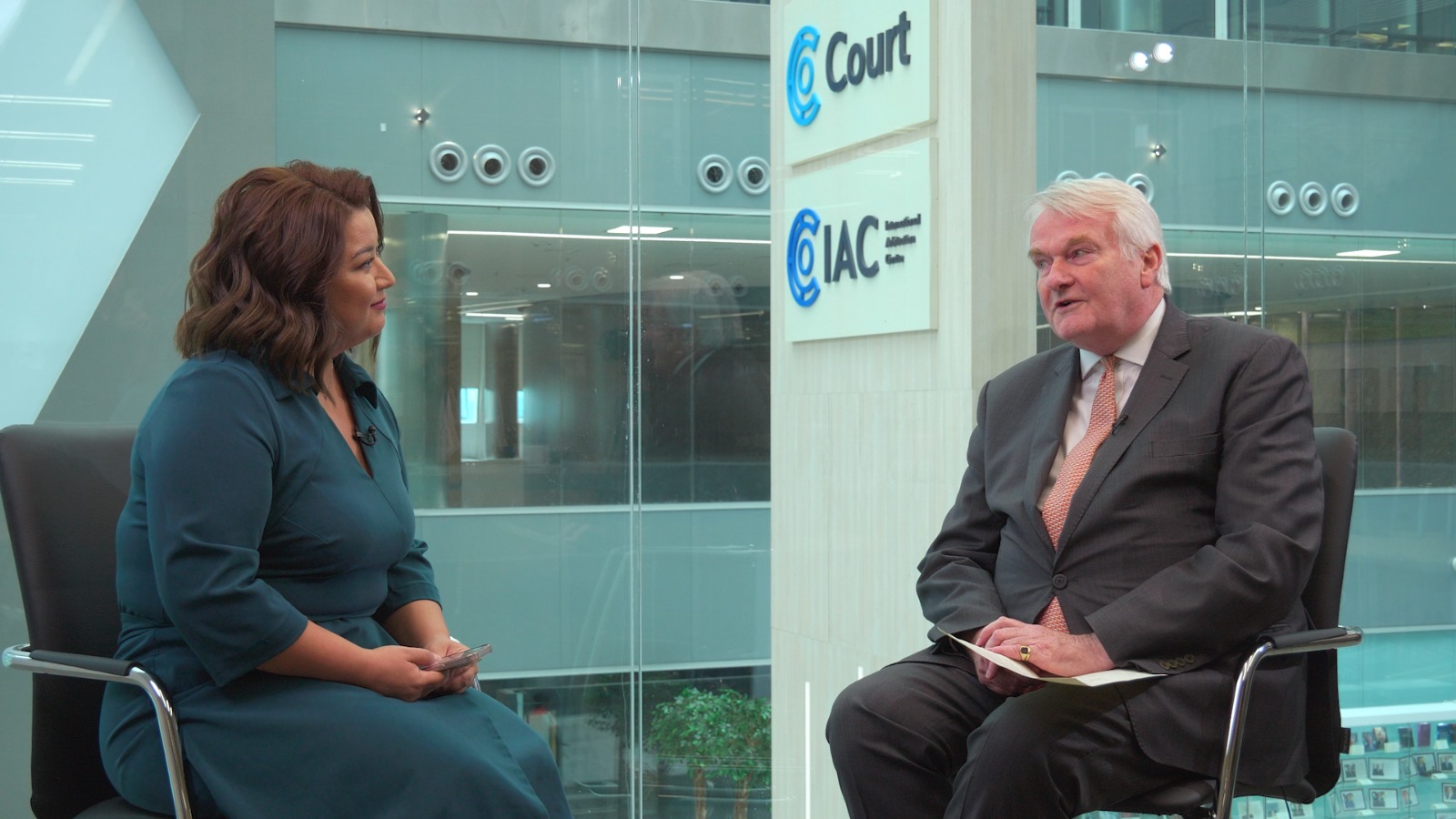ASTANA — Born in Sussex, the United Kingdom (UK), in 1958, Ian Duncan Burnett, Baron Burnett of Maldon, who held the position of Lord Chief Justice of England and Wales from 2017 to 2023, was appointed Chief Justice of the Astana International Financial Centre (AIFC) Court in November 2023. From an early age, Burnett’s career was destined to be connected with the law.

Lord Burnett. Photo credit: The Astana Times
Reflecting on his journey, Lord Burnett shared in an interview with The Astana Times YouTube channel that he began to consider being a lawyer in his teenage years.
“For various reasons, a number of people thought I might turn out to be quite a good lawyer. I was about to take the entrance exam for Oxford, so I had to make my mind up. I was attracted by the law. I was attracted by arguing cases in public. So, by the time I was 17, I had settled upon a career in the law,” he shared.
The legacy of Lord Burnett: a career of legal milestones
His distinguished career, spanning several decades, is marked by his involvement in high-profile cases, including his work on the inquiries into the 1987 Kings Cross fire, the convictions of the Guildford Four and Maguire Seven, the 1997 Southall and 1999 Ladbroke Grove rail crashes, and the inquests into the 1997 deaths of Diana, Princess of Wales, and Dodi Fayed.

Chief Justice of the Astana International Financial Centre (AIFC), Lord Burnett spoke to The Astana Times correspondent Aida Haidar. Photo credit: The Astana Times.
“That was actually my last case as a barrister before I became a judge of the High Court in England,” he noted, referring specifically to the Diana inquiry.
According to Lord Burnett, the peculiarity of public inquiries in the UK are often led by judges or retired judges, reflecting the high level of trust and confidence the public has in the judiciary.
“Polling suggests that judges are amongst the most trusted group of people in society. I think that comes from a well-known understanding that judges are fiercely independent and impartial. They have also, before being appointed judges, practiced as successful lawyers for many years and so are seen as very competent. So not always, but broadly, the judiciary in the UK has a high level of public confidence,” he said.
In reflecting on the immense pressure of handling a high-profile case like the Diana Princess of Wales inquiry, he noted that the intense global scrutiny made the role particularly challenging. As counsel to the inquiry, his responsibilities included overseeing evidence collection and working closely with the presiding judge to manage the proceedings.
With numerous conflicting conspiracy theories circulating, the team decided to examine each one thoroughly, fully aware of the worldwide attention their work was receiving. He emphasized the importance of diligence and preparation under such pressure, highlighting the need for careful communication to avoid sensationalism.
“I think it would be a very unusual person who would not feel a weight that results from that. But it comes back to one of my earlier answers. Work hard. Be prepared. Preparation will enable you to do the case properly. It also demonstrates a need for judges, in particular, but also in lawyers, to be careful about the language they use. They must try to avoid being sensational,” he said.
AIFC Court and IAC support Kazakhstan’s ambitions, reinforcing investor confidence
Lord Burnett discussed the origins of the AIFC Court and the IAC, which were established under the guidance of Lord Woolf CH in 2017 —a figure he knew from his days as a barrister.
“Lord Woolf’s plan was to secure the services of a number of recently retired senior judges from London to act as judges in the AIFC Court,” shared Lord Burnett.
He continued that Lord Woolf’s vision was to bolster investor confidence in Kazakhstan and reinforce the rule of law. His successor, Lord Mance, also saw it in this light.
When asked to succeed Lord Mance, Lord Burnett did not hesitate despite his limited prior knowledge of Kazakhstan.
“Like many in Western Europe and the United States, I was not well-acquainted with Kazakhstan before, but it has been a fascinating experience to learn more about the region,” he said.
“I make an effort to stay updated on news about Kazakhstan. Having been Chief Justice for just under a year, I still have much to learn,” he added.
The establishment of the Court and the IAC as part of the AIFC represents Kazakhstan’s strategic effort to boost its appeal to foreign investors by offering a familiar legal environment. The Court and IAC aim to provide legal certainty and operate under a legal framework rooted in English common law, which is globally recognized in commercial law. This approach is designed to make international companies feel more secure when investing in Kazakhstan.
Lord Burnett emphasized the Court’s independence, noting that it is firmly enshrined in the statutes that created it and has received strong support from the Kazakh government, including President Kassym-Jomart Tokayev.
“The judges are fiercely independent, and all have a significant international reputation in commercial law and are known to have been acting independently throughout their careers. It fosters confidence, and I think in that respect, it is an important contributor to the legal environment in Kazakhstan,” he said.
AI and the future of law: transforming Court transcription
At the recent Astana Financial Days, the debate around AI centered on whether it acts as a disruptor or a facilitator. Discussing AI’s impact on the legal framework at the AIFC Court and the IAC, Lord Burnett emphasized that “technology is at the heart of what they do.” He explained that all documentation is accessible online for judges, parties in the arbitration centre, and arbitrators, streamlining and simplifying the process.
Lord Burnett also highlighted a noteworthy project underway.
“We have a project in the Court, developed by a Kazakh company, to use AI for simultaneous translation between English and Russian. Although it is not yet available in Kazakh, we are starting with English and Russian first. I think this is a truly significant development, and I am particularly pleased to be involved in it,” he said.
Lord Burnett recalled a speech he delivered seven years ago during his tenure as Chief Justice in London, in which he predicted that technological advancements would eventually make traditional court interpreters obsolete. Back then, this prediction sparked criticism from UK interpreter associations, which claimed AI would never replace human interpreters. However, as Lord Burnett said at “the AIFC Court and IAC, they are nearly there.”
“It makes everything easier, helps the process flow more smoothly, and ultimately reduces costs. We also conduct many hearings remotely if it is more convenient for the parties, and there is no reason for the judge to be physically present in the building,” he said.
Lord Burnett emphasized that “AI should be the servant and not the master.” Reflecting on the evolution of computer analysis, he noted its rapid progress in recent years and cautioned against rigidly predicting its future trajectory. However, he acknowledged the significant potential benefits of AI across various fields, including law and the courts.
